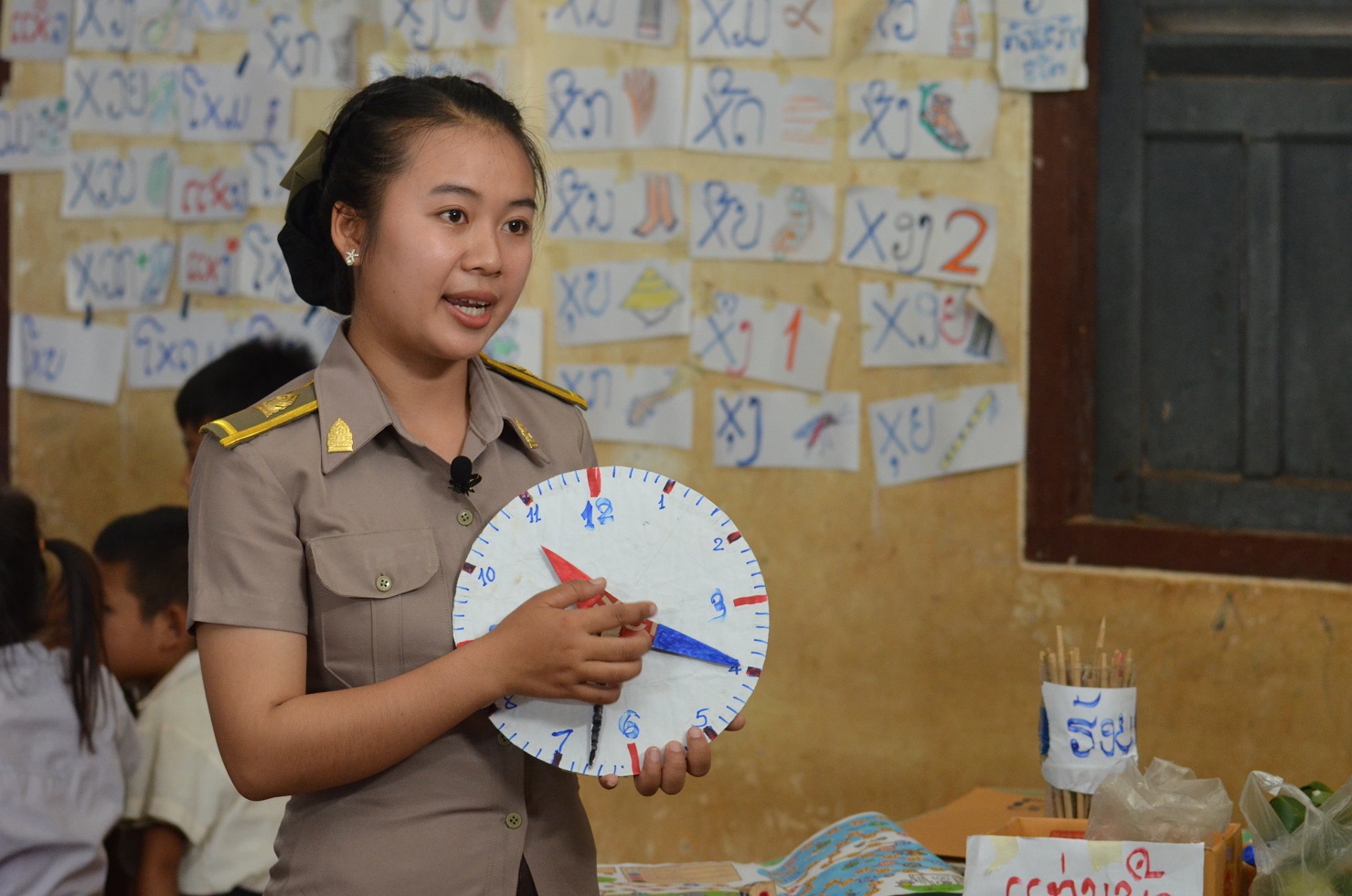
Teacher Vatsana explaining how she makes simple clock from recycled materials
Locally made teaching and learning resources is the topic of the new Role Model docuseries episode that has just been released on TV, radio and YouTube
For the fourth episode of the Role Model docuseries, the TV, radio and newspaper teams from the Information Media Center (IMC) of the Ministry of Education and Sports (MoES) tell the story of an inspiring public-school teacher who is a master at creating teaching and learning resources using no-cost local or recycled materials.
Ajan Vatsana Sengsoulisouk comes from the Phouthai ethnic group. She was born in a very rural and poor village and her dream was to become a teacher to support her village and her community. In 2015, she received a scholarship from the Australian Government, through the BEQUAL program, to study in Savannakhet Teacher Training College. Her dream became reality, and she is now a grade one teacher in a remote village from Atsaphone district, Savannakhet Province. The IMC team selected her to share how she uses her amazing creativity to help her students to learn by engaging them in hands-on learning activities using locally available resources.
Since 2019, MoES with the support of the Australian Government has been developing and rolling out a new grade of the improved primary curriculum each year. The curriculum has a new student-centered pedagogy developed by MoES with the support of the Australian Government. Now the students learn through activities, experiences, hands-on practice, engaging with learning materials and applying their knowledge.
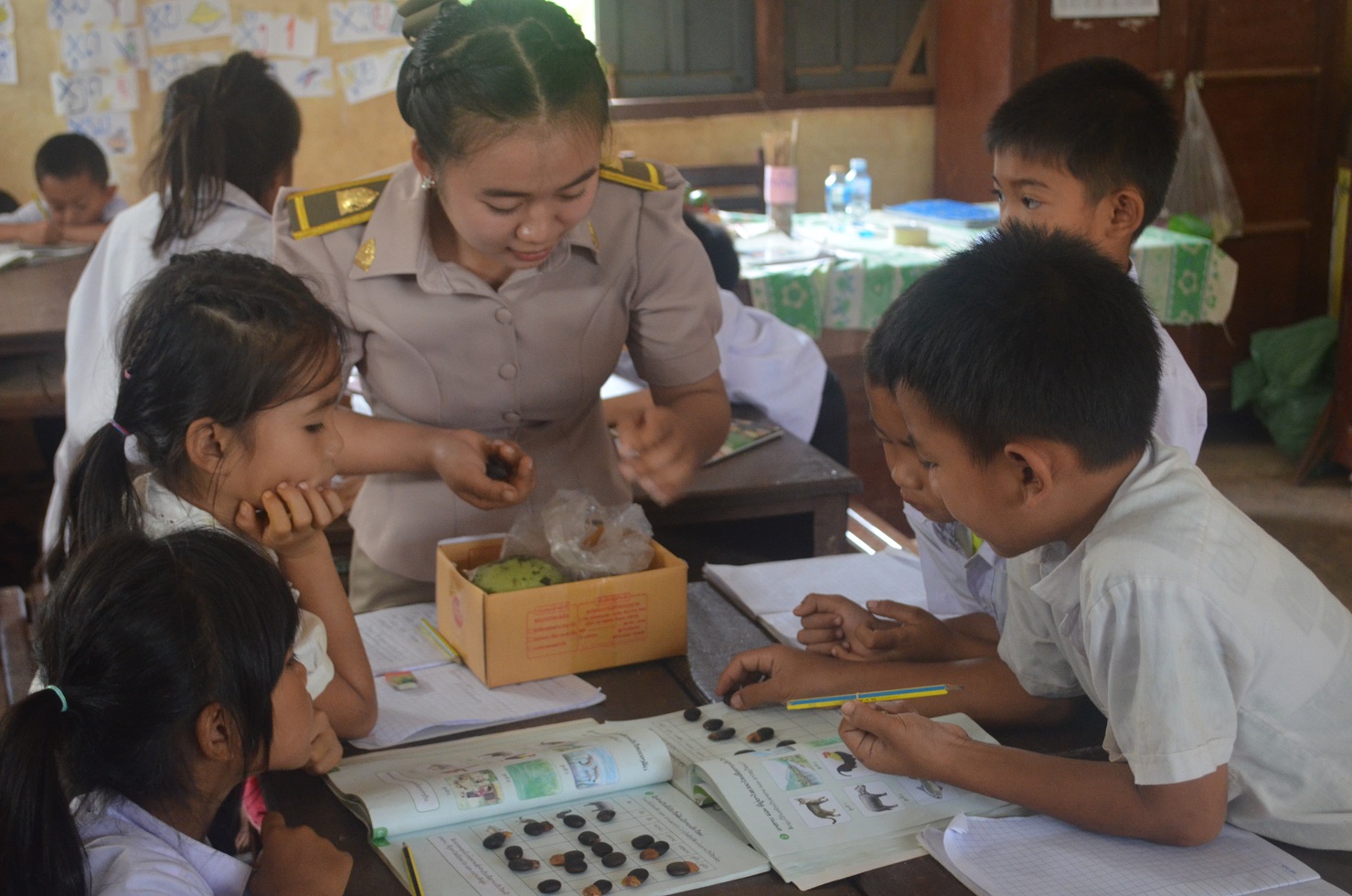
Using seeds for Lao Language lesson

Making sticks from bamboo for maths lesson
Ajan Vatsana explains “I love the new pedagogy. My students are happier to learn, more motivated. My classroom is so busy. I create many materials that the students use in class. And I can see that they remember the lesson much better when they do an activity and use learning materials.”
Ajan Vatsana creates a wide variety of resources from the materials she finds in her village. She weaves palm leaves to make a ball and draws a target on recycled cardboard for sports activities. She creates color from flowers or roots for painting lessons. Ajan Vatsana says “When you use resources available in the community, the students can relate more to the lesson. They understand better.” For maths, Ajan Vatsana uses bamboo trees cut into sticks or tamarind seeds for counting. For storytelling, she draws characters on paper hats and encourages her students to act out the story. The students often help to make the learning materials, especially the drawing and painting of flashcards. She explains “When I prepare my lesson, I see what will be difficult for them. I also observe my students in class when they have difficulty with a topic. And then, I will create an activity and some materials to support them. I collect all the resources in my village, mostly from nature; they cost nothing”.
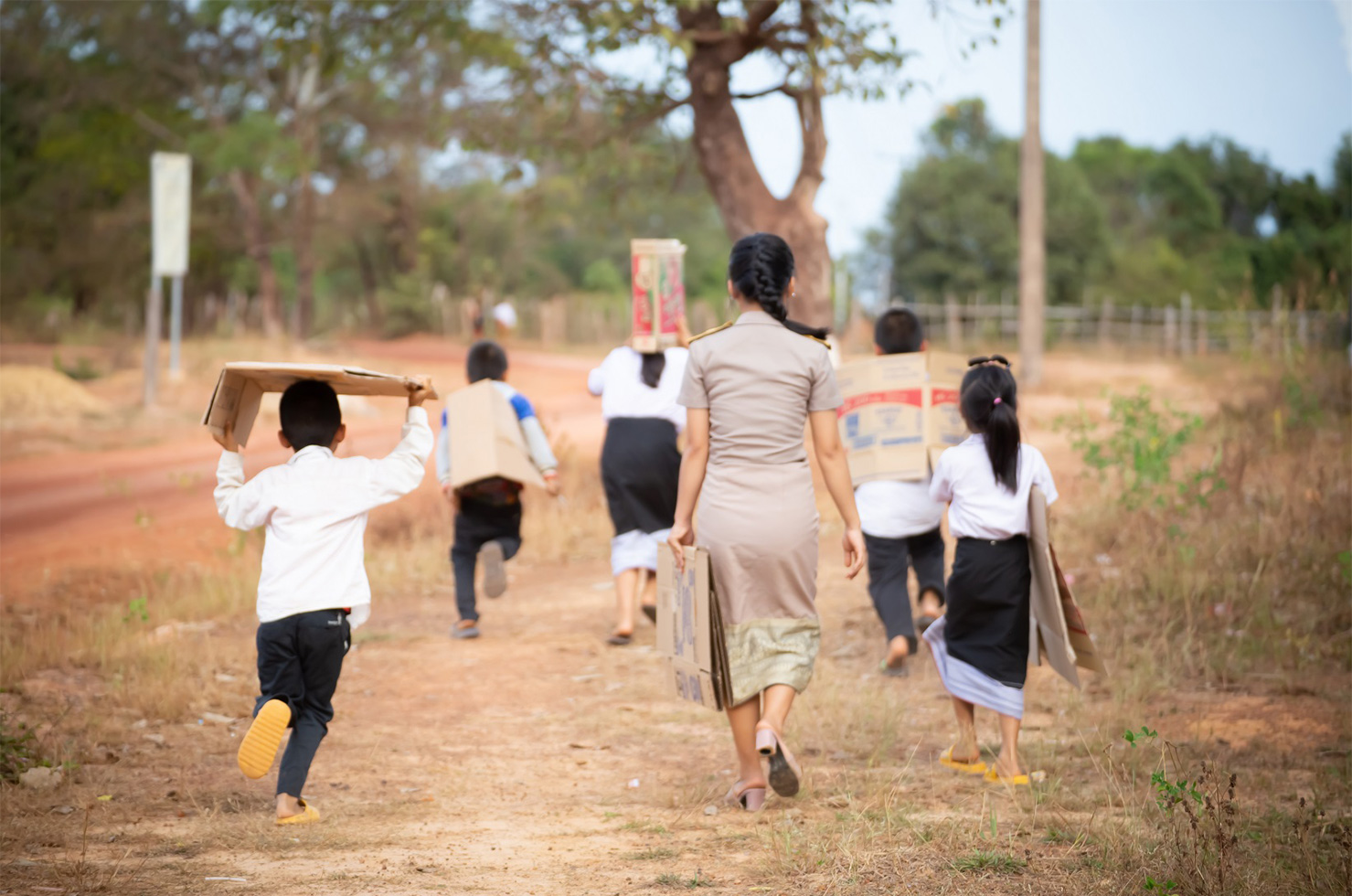
The students help teacher Vatsana collect recycled cardboard to make learning tools
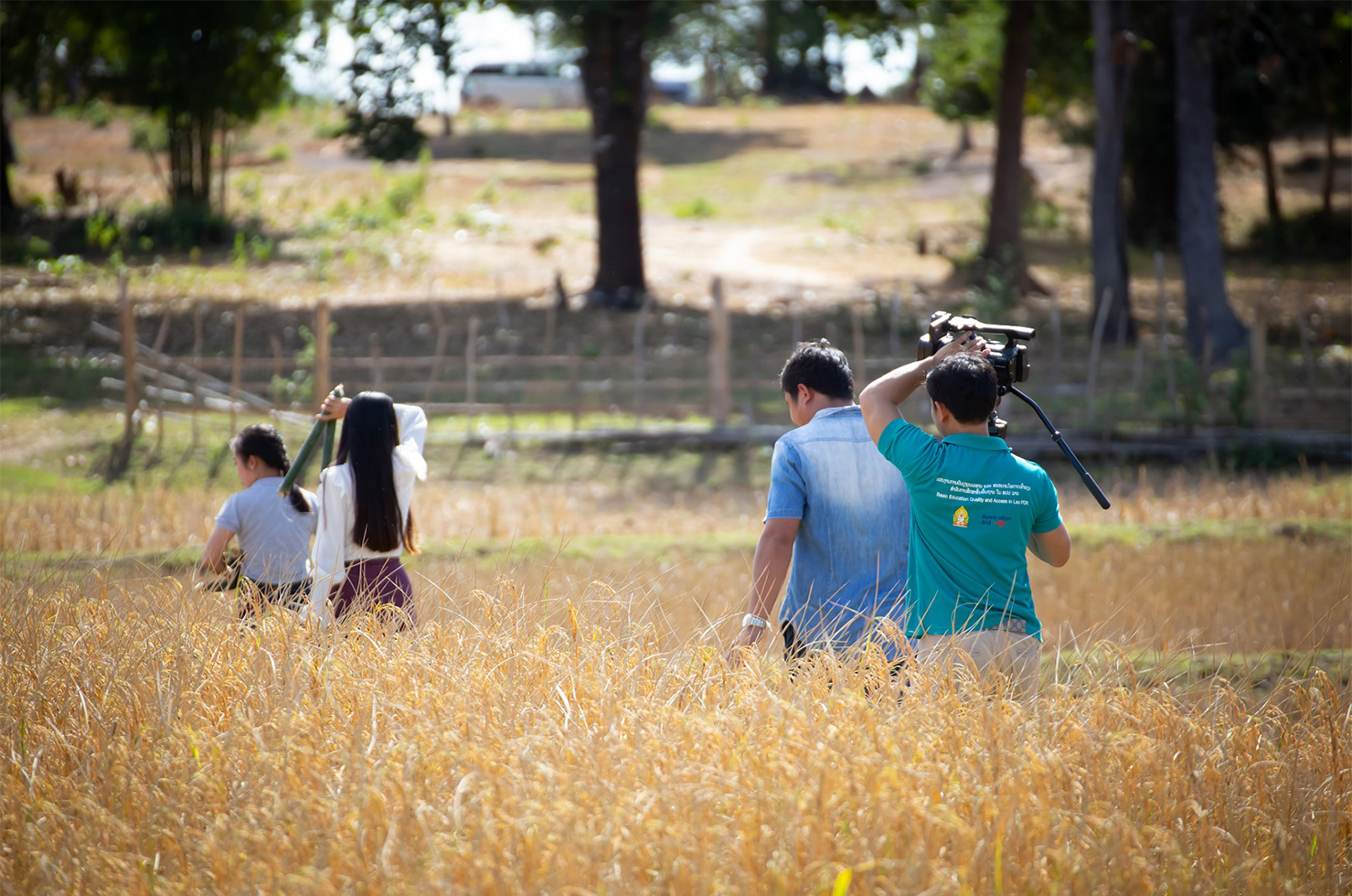
Ministry team filming a documentary on the importance if locally made teaching and learning resources in Atspahone district
Ajan Vatsana concludes “I had my first ideas from other teachers who have more experience. And I hope I can also share my ideas and inspire other teachers. It is so rewarding to see my students enjoying learning and making progress thanks to the resources I created.”
When you see the smiles on the faces of Ajan Vatsana’s grade one students when they enter the classroom in the morning, you know those students will enjoy their day at school, they will listen, participate, and learn, no matter their abilities. Passionate and inclusive teachers such as Ajan Vatsana can make a huge impact on the quality of education and the future of the new generation.
The story of Ajan Vatsana can be watched on the ວິດີໂອສໍາລັບການພັດທະນາຄູ Teacher Development Videos You Tube Channel and on Education and Sports TV on Lao Sat Channel 8. The Role Model docuseries project is fully supported by the Australian Government through the BEQUAL program. The objective of these interview-based communications is to promote and encourage the replication of best practices to boost the implementation of the new curriculum and to share innovative ideas addressing teaching and learning challenges.
Watch the video Click here
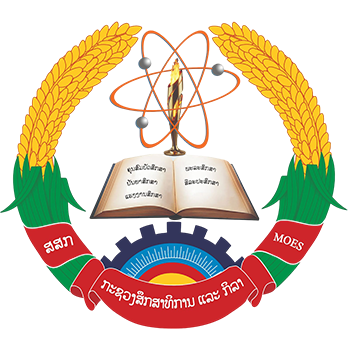


 ພາສາລາວ
ພາສາລາວ